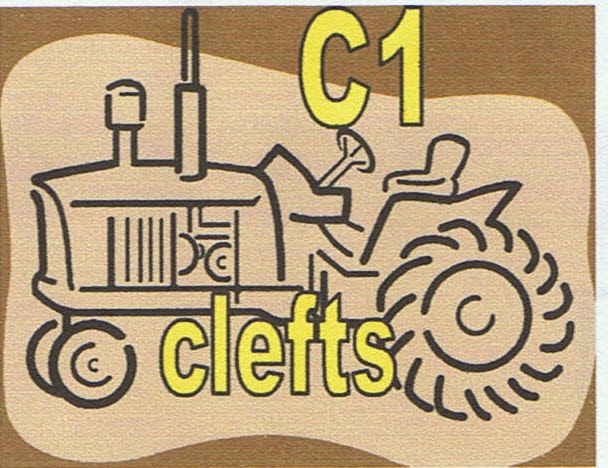scary errors
Some common errors in writing
(and speaking)
that I’ve noticed and you must get rid of
(if necessary, others will be added)
Probably because neglected in lower courses (who knows why!!), the
following points are some of the common
errors students drag up to B2 and C1, and, unless we do something about it, they’ll
drag them up into C2 (if we ever have C2 in this Escuela). Any of them, as you’ll
see below, could spoil a writing.
Having this information will not help you when speaking (unless you practise repeating different examples),
but at least you’ll have your chance when it comes to writing.
(Let me remind you here that I’m still used to the British spelling of the
verb “practise”, and the noun “practice”, and no spell-checker will make me
change it).
CONTENTS:
·
another –
other – others
·
“find” or
“find out”
·
have been
“in” or “to”
·
immigrant?
emigrant? a problem brought about by some journalists and their pens
·
let (a new type of error - three years at most)
·
provide
·
possessive:
“a friend of me” or "a friend of mine"?
·
see: "Now we are seeing” or “now we see” or “now we can see”?
·
too +
much/many
·
used to “get” or used to “getting”
·
way “to” or
“of”
·
whether - if
another –
other – others
another
adjective or pronoun
always singular
adjective or pronoun
always singular
Ø I saw a helicopter
going to the Montes, and, almost at the same time, another helicopter coming to
the sea. (adjective + noun)
Ø There was a man running along Larios Street, and
then another
running after him. (pronoun, singular)
other
adjective or pronoun
singular or plural
adjective or pronoun
singular or plural
Ø I saw two men coming out of the supermarket. The first
man went to the left while the other man stayed there. (adjective + singular noun)
Ø I saw four men coming out. One of them left
immediately, the other three men stayed at
the door. (adjective + plural noun)
Ø I saw two men coming out. One went to the left and the other
to the right. (pronoun, singular)
only pronoun and only plural
Ø There were five children throwing stones at the
neighbour’s windows. When they saw me, one was stunned but the others ran like hell.
And if you dare say or write:
The others children..
Not a second will I hesitate to hang you from the nearest palm-tree
The others children..
Not a second will I hesitate to hang you from the nearest palm-tree
“find” or “find out”
find: basically: to come across
something by chance or to locate something you were looking for.
Ø
Although they have searched all over the
house they couldn’t find the money;
it must be hidden somewhere else.
find out: to learn by enquiring,
studying, watching, or searching
Ø
I asked about it at different offices but I
couldn’t find out what I have to do
to go on a year leave. Nobody seems to
know.
have been “in” or “to”
If you happen to have
lived in a place (Botswana, let’s say) or visited it several times but now
you are not in that place, you’ll have to use verb “to be + to”
Ø
I have
been to Botswana several times, but I
always return to my homeland.
but if you
are still there, because you live there, for example, you have to use “to be +
in”
Ø
I have
been in Botswana for two years, and I don’t think I’ll go back to my
homeland.
immigrant? emigrant? and problems
The first one is used to refer to people who have “arrived in” a country (or area); the second one, to refer to those
who leave a country, as it can
clearly be seen in the following examples:
Ø
the African immigrants arrived in our country yesterday morning
Ø
When the crisis began most immigrants went back to their country
Ø
Spanish emigrants
left Spain in swarms at the turn of the century
Ø
My uncle is an emigrant: he left Malaga 20 years ago
But behold! there are “migrants” who “migrate”
Ø
You will find migrants all over the world.
Ø
Some people immigrate, that is, they come
into a country; others, emigrate, that is, they leave their
country; but all of them migrate somewhere.
let
Staying
at home does no let people to learn…….. Beautiful beginning but…..
Think of the very popular and simple example
Ø Let me go! Let me go!
Why on earth will somebody want to introduce a
“to” (to-infinitive) there.
Ø Why don’t you let the brother and the sister from that Botswanan little town leave the school with the rest.
Ø Finally, they let me open the window, and when they were not
looking I jumped out.
Ø “Let your hair hang down” (A
song by The Tremeloes, I think; back in the 60’s)
No matter how long the object is, you squeeze
it between let and the bare infinitive (infinitive without “to”). The
same goes for “make”. But beware: only in the active voice; passive voice is a
different story altogether.
provide
Tricky verb, for
sometimes is constructed like “give” and sometimes is not
Ø
They provided blankets to the refugees (like “give”)
BUT:
Ø
They NGO will provide all the immigrants with
both food and warm clothes
Ø
They provided the refugees with blankets
possessive: “a friend of me” or a friend of mine?
When you want to refer to
something or someone you have out of a group, you will have to resort to
something like a double possessive:
“….. of
mine/his/hers/yours/theirs”
Ø
a friend of mine has left for Botswana → one of your friends has left
for Botswana
Ø
a friend of theirs introduced me to the president → one of their
friends….
You should use the genitive when
you introduce a person:
Ø
A friend of my sister’s has just arrived → one of my sister’s friends.
Ø
A friend of my parents’ told me not to do it → one of your parents’
friends
Ø
Some friends of my twin brothers’.
Of course it’s not limited to
“friends”. You can refer to anything you want or need to: books, cars, trees
and even elephants.
Ø A book of mine was found in the courtyard.
Ø An elephant of my sister's escaped last night (Can you imagine?)
Ø An elephant of my sister's escaped last night (Can you imagine?)
see
"Now we are seeing” or “now we see” or
“now we can see”?
To avoid
definitions that might be confusing, let’s simply say that there are verbs
which are not used in the continuous tenses (progressive aspect). These are,
for instance, know, think (meaning “have the opinion”), etc,
and the verbs of perception, among which we’ll find “see” (not when see means meet)
So, never
“I’m seeing a mafia-looking car trying to park in front
of my house”, but “I see a car”, or, as it must be used to express what you see
at the moment of speaking “I can see a
mafia-looking car trying to park….”
Ø
And now,
all I can see is a bunch of hooligans
rioting in the street
Ø
While I was
doing the washing up she was looking
out of the window and saw how they
assaulted the old lady to rob her of her handbag
too + much/many
The clue here is the word “too”,
which means something like “in excess” (to put it short). Being an adverb you
can have it preceding an adjective or another adverb. For example: too big, too
slowly, and whatever you want to think of.
Just see the examples where much and many are adjectives preceding a noun.
Ø He had too much money at
home
Ø There was too much food
Ø He had too many problems
Ø There were to come too many
people
BUT
only
“too” before adjective or adverb
Ø it was too late
Ø the bag was too heavy
Ø The film was too boring
Ø The car went too slowly
So, NEVER
Ø It was too much late
Ø he was too much heavy
please.
used to “get” or “getting”
“a usual traveler is definitely more used to get/getting in contact…”
When you refer to a habit you had in the past, you
will obviously resort to “used +to-infinitive”, as in the following example:
Ø
I used
to get up very early when I was in the army, but that was ages ago.
I'm not in the army any more not only because "ages ago" says it, but also because "used to get up" says it..
But if you’re talking (writing) about the process of acquiring a habit or the state of having it, then you’ll have to resort to “used + to + verb/noun”, where “to” is not part of an infinitive but just a preposition, that’s why the “ing”:
But if you’re talking (writing) about the process of acquiring a habit or the state of having it, then you’ll have to resort to “used + to + verb/noun”, where “to” is not part of an infinitive but just a preposition, that’s why the “ing”:
Ø
Since I have this new job I’ve had to get used to getting up early again.
Notice that instead of the “ing verb” you can introduce a
noun or a pronoun and the sentence will still mean something:
Ø
I’ve had to get used to it
Ø
I’ve had to get used to the alarm clock
Ø
My sister is
used to going to all those places that are packed, and she loves it.
Ø
My sister is used to those places.
Ø
My sister is used to them
way
“to” or “of”
“…discovering new cultures is the best way of getting/to get an open-minded and
kind society…” manner, mode, or fashion:
The prepo (let's call them "prepo", or "prepoes") will depend on the meaning
1. manner, mode, or fashion: of + ing
Ø
as you can see it’s a personal way
of looking at the problem.
Ø
He always answers in a polite way.
2. a method or means for gaining
something or achieving a goal: to-infinitive
I will find the way
to do it before they find me.
whether
- if
… the idea of
being injured in a suicide attack makes people think about if/whether they should travel or not.
if: conditional, mainly
Ø
If you come, I’ll go (conditional)
Ø
She didn’t know if/whether she’ll come (optional; notice the preposition: there isn’t any)
whether: optional
Ø
I don’t know whether I should go or not
Ø
I never thought about whether I should stay or leave




Comentarios
Publicar un comentario